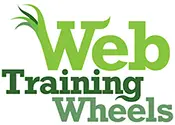Notes and Resources from OC Wordcamp Marketing Presentation
This past weekend I gave a presentation at OC Wordcamp, discussing using a WordPress site for marketing your business, service or product. As promised, here are the some of the key points, along with links and tools that were mentioned. If anything is missing, leave a comment!
When developing a strategy for your site, the first and most important question to ask is:
Who do you want to come to your site? Who is your target audience?
Thou shall not answer “everybody”!
Get specific since the answer will provide the basis for all aspects of your online marketing strategy.
For more on this topic, also read:
Recharge and Refine Your Marketing Strategy
What Is An Online Marketing Strategy?
